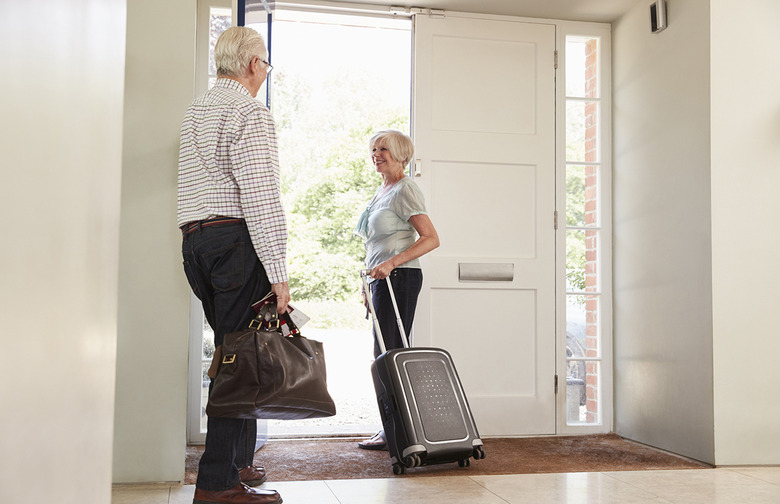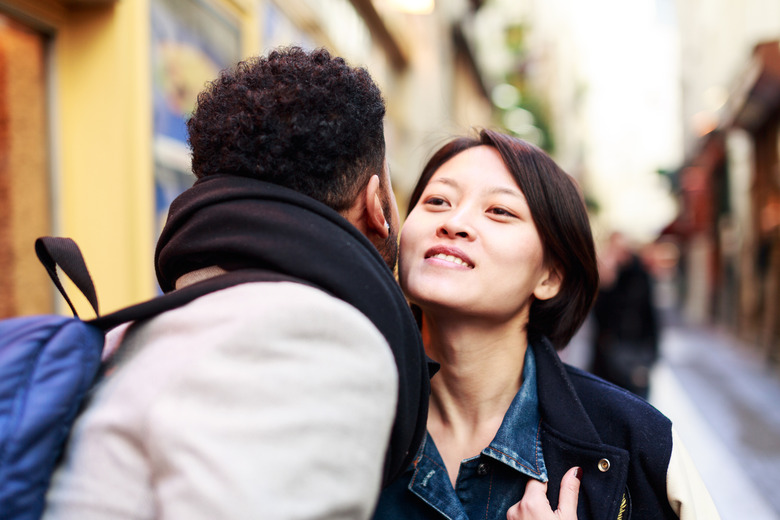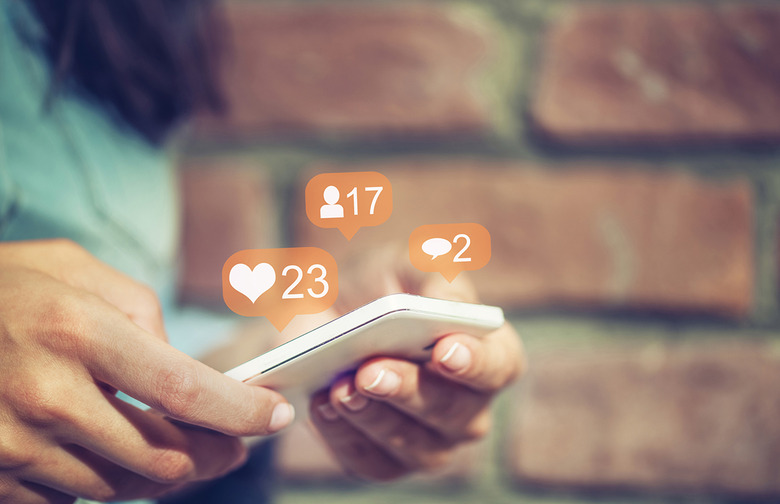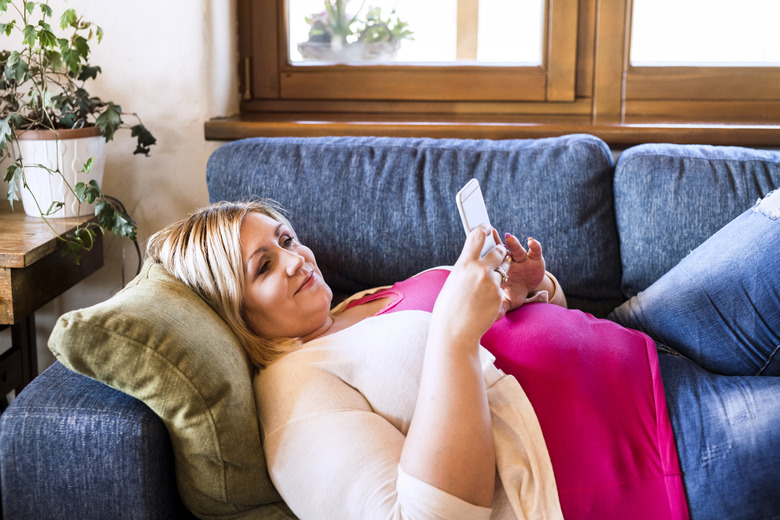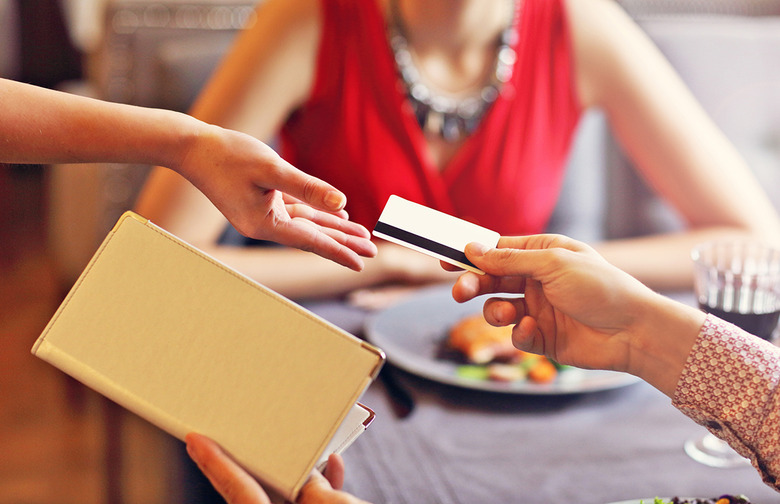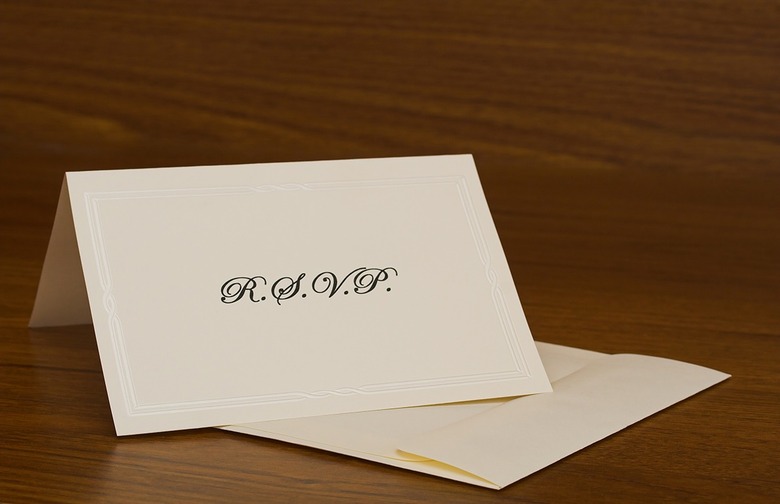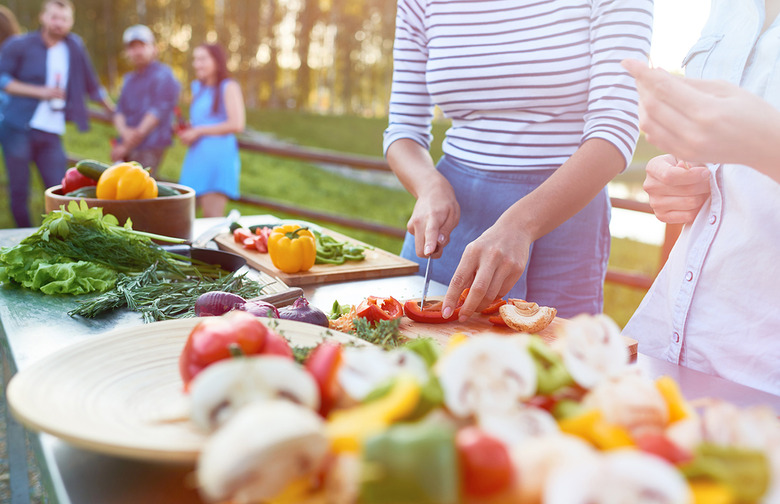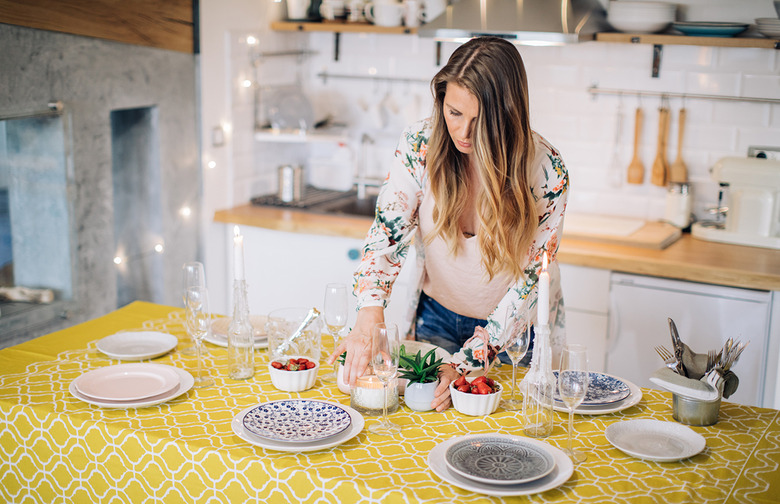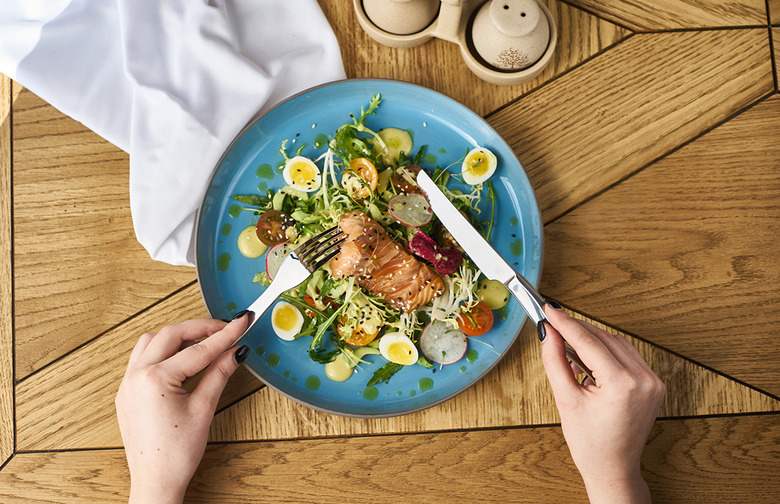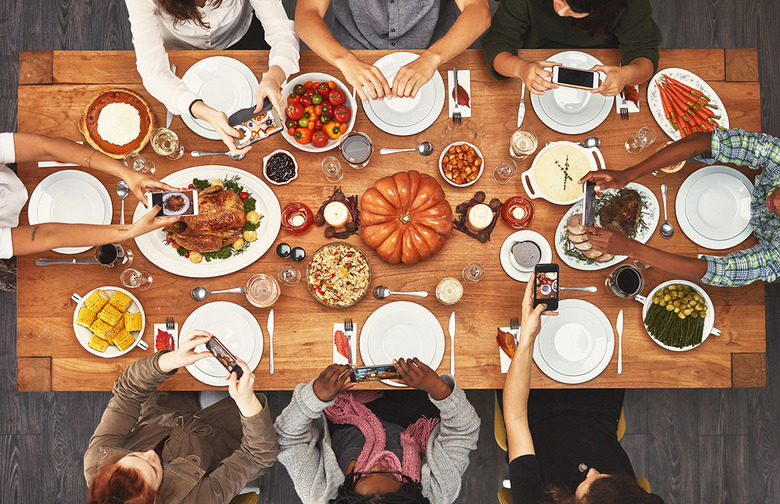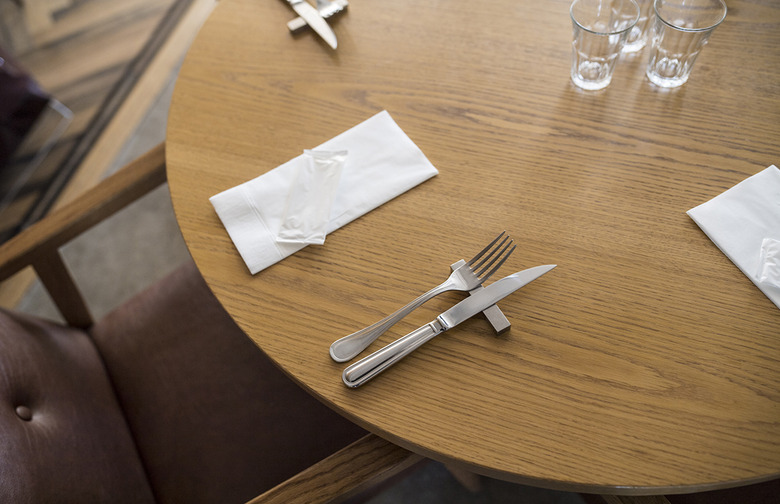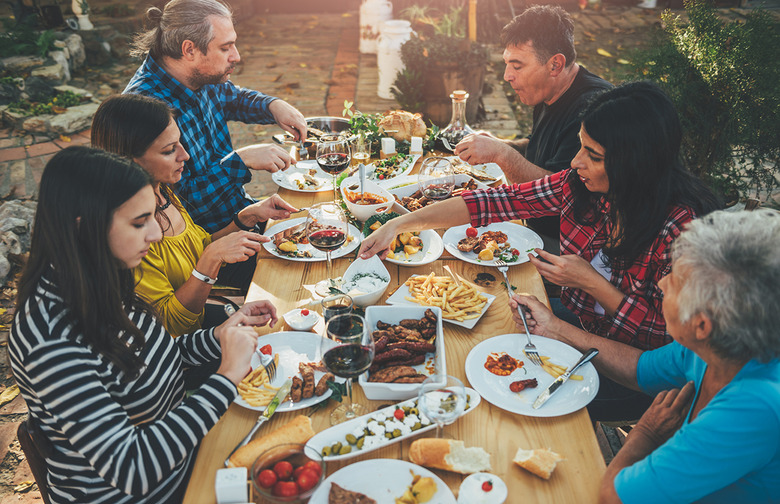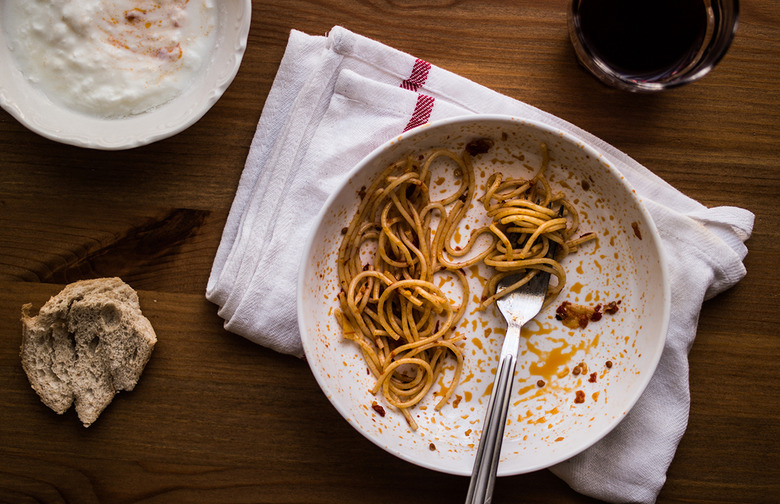Should You Still Call A Woman 'Ma'am'? And Other Modern Etiquette Questions Answered
To say the modern world is constantly evolving and rapidly changing is an understatement, and there are certain etiquette guidelines and rules that feel... outdated. Kissing a woman's hand when introduced, for instance, is less than charming in the 2010s. To figure out how to best navigate the waters of etiquette in the 21st century, The Daily Meal reached out to five etiquette experts to see just how much things have changed.
We corresponded via email with Sharon Schweitzer (an expert in etiquette and modern manners and founder of Access to Culture), Angie Allison (chief etiquette officer and master etiquette trainer at Daily Protocol), Myka Meier (founder and director of Beaumont Etiquette), Jennifer Porter (a manners instructor in Seattle), and Jodi Smith (etiquette consultant from Mannersmith Etiquette Consulting) to get their insights on modern etiquette.
During an era in which age and gender can be touchy subjects, is it still appropriate to refer to your elders as "ma'am" and "sir"? Should you ditch the BYOB gathering once you graduate college, or is that a perfectly fine way to cut your own party planning budget and ensure your guests have their favorite drinks on hand? Who pays for a date? How do you let your host know about food allergies? There are more etiquette questions than you can even imagine, but luckily we have the answers.
Should you call a woman ‘ma’am’? Should you call a man ‘sir’?
According to Sharon Schweitzer, an expert in etiquette and modern manners and founder of Access to Culture, the answer to this puzzling question depends on where you came from. "Depending on where you were raised, and if it was in the South or in a military home, you may use 'ma'am' and 'sir...' If you want to succeed, get that promotion and be well received by the family, when addressing an adult that is older than you are, it is best to be formal until invited to be informal," she said. However, she noted that if you don't wish to use "ma'am" or "sir," you can use a more informal yet respectful "Mr." or "Miss."
Should you hold a door open for someone, or has this practice gone away?
Angie Allison, chief etiquette officer and master etiquette trainer at Daily Protocol told us "this practice has never gone away, and is such a kind gesture and a day-brightener." Indeed, it's an easy way to be more polite! Allison notes that this courtesy should especially be practiced for people who may be using a cane, pushing a stroller or carrying large items — regardless of gender. "Whether you're a man or woman, boy or girl, hold the door open for the person who is close behind you," she said. "If you're in a group or walking a little ahead of others, be kind and open the door in advance."
When do you kiss hello or hug hello? When do you shake hands?
"You shake hands in a business situation, with two pumps, and a three-pump handshake is appropriate for social situations," Myka Meier, founder and director of Beaumont Etiquette, told us. "Air kisses and hugs are greetings for friends and close associates. While a cheek kiss, where your lips touch the other person's cheek, is reserved for close relatives such as grandparents. It's one kiss in the U.S. and two (or even three!) in many other countries, including those that are European or Latin countries."
What are the basic guidelines for sharing your life on social media?
Jennifer Porter, a manners instructor in Seattle kept her advice on using social media simple: Rely on the Grandmother Test. "If you wouldn't be proud to show your nana your latest post the next time you see her, don't post," she noted. Sounds easy enough! And Grandma definitely has a few etiquette tips she wishes you'd follow.
What is the best way to cancel a date?
Listen, it's never great to bail on a date, but according to Porter, etiquette is all about making people feel comfortable and valued, so you should cancel with a phone call or, at worst, a voicemail. Doing otherwise is an easy way to be rude — even if you don't realize it! "Please do not text any type of cancellation," Porter said. "A text is cheap in both effort and time. Invest in people to build the types of relationships you want."
Who should pay for a meal on a date?
Who pays for a meal on a date? According to Meier, it has "nothing to do with gender anymore." "Whoever invites the other person and chooses the location should pay. It's perfectly good etiquette, however, for the person invited to offer to share the costs," she said. This notion is just one of the many ways that dating has changed since you were in high school.
Is it ever acceptable to throw a BYOB (‘bring your own beverage’) party?
One of the trickiest things about modern manners, Schweitzer said, is that it's not one-size-fits-all. "Etiquette can be situational, and this is one, because you need to know your audience. Historically, with formal dinner parties, guests expect the host/hostess to furnish all of the cuisine and adult beverages. The hostess doesn't expect the guests to come empty-handed as they may ask how they can assist with the planning or bring a small host gift," she noted. "However, if the meal is a casual gathering or informal brunch, then it's the perfect time to respond to the question of 'What can I bring?' with 'Bring your favorite adult beverage.' Be sure to explain whether they will be sharing it with everyone or consuming it themselves. If the guests don't ask about BYOB, then bring up the topic and tell them." It's all about open and honest communication.
How long does someone have to respond to an RSVP?
"It is best to respond to an invitation within 24 hours," Schweitzer said. You probably know whether or not you're going to go, after all. "That being said, many times calendars must be coordinated, and so it can take 48 to 72 hours. The main goal is to avoid keeping the host waiting, as they must provide a headcount for catering, seating, etc. Be polite and RSVP!"
Is it on the host to ask or on the guest to share dietary restrictions?
In a world where everyone seems to have a gluten intolerance, dairy allergy or aversion to seafood, how does a host navigate the dietary needs and restrictions of a guest? According to Meier, "a host should always ask their guests if they have any dietary restrictions or food allergies as soon as they RSVP." She noted that if the host does not ask, then it's up to the guest to tell the host about any food allergies with enough advance notice so that the host has time to prepare.
What are the basic guidelines for inviting plus-ones?
Everyone wants to bring a friend to an event or dinner party, but who gets to bring one? According to Allison, it's up to the host or hostess. "If you receive an invitation inviting you 'and guest,' by all means please do bring a guest if you're so inclined," she said, adding that you should let your host know the guest's name ahead of time.
Is it ever appropriate to bring a plus-one without telling the host?
Allison has a simple answer: No. You can't just bring a plus-one without asking. "Be mindful, as a guest, that a host has a budget, menu, and other event considerations, and may not be able to accommodate additional people." However, she did note that if you've been invited to an event without a plus-one, and you've become involved in a serious relationship or are newly engaged, it's fine to decline and let the host know why. Then, in most scenarios, the host will extend the invitation to your significant other.
When should one bring a host/hostess gift?
This one is another simple answer: "Always!" Porter said. "Never arrive empty-handed, whether it's a dish to share at the meal, a gift of freshly cut flowers, or a bottle of the host's favorite beverage."
What is an appropriate host/hostess gift?
Jodi Smith, a nationally known etiquette consultant from Mannersmith Etiquette Consulting, says we all know the typical host gifts: wine, chocolates, gourmet cookies, decorative towels, candles, beautiful writing paper, plants, flowers or a small toy for the child/pet of the house. But if you can, put a bit more thought into your token of appreciation. "If you are arriving from afar, it is thoughtful to bring a 'specialty' from your location. Think macadamia nuts from Hawaii," she said. "Of course, if you know the host well, you can give something more personalized."
What should modern people know about thank you notes? Are email thank you notes OK?
"Thank you notes are both a gift of expression and appreciation. It really doesn't matter what form your thanks takes as long as it's sincere and prompt and conveys gratitude," Porter said of the sometimes-dreaded practice everyone's parents made them do. "That said, nothing replaces the beauty of a handwritten thank you note. A note is both thoughtful and intimate. Your handwriting shows your appreciation through the effort it took to draft, write and send your thank you note. Take the time to show how much you care."
Which water glass, soup bowl, bread plate and utensil is whose?
There seems like no greater faux pas than drinking from a water glass that isn't yours. So how do you navigate a more formal table? Schweitzer said it's important to know your "table map." "Starting from left to right, think BMW — bread, main and water," she noted. "The bread plate is on the left above or near your forks, the main plate is in the middle, and the water glass is on the right of the knives." Fancy car, fancy dinner: They go hand in hand.
Where do you put a napkin when getting up from the table?
Napkin etiquette is more complicated than you think; so how do you navigate it? According to Smith, "[A] napkin on the chair signals you are returning to the table. Napkin on the table means you have left the meal." And if you're getting up from the table to greet someone, "please take the time to put your napkin on your chair; otherwise, you look like you are clutching a security blanket as you move about," Smith said. And no one wants that.
What should one do with a phone, purse and other personal belongings at the table?
Schweitzer reminded us that it's been considered rude to put your "purse, man-purse or cell phone on the table" since Emily Post's 1922 edition of "Etiquette in Society, in Business, in Politics and at Home." "It is also unhygienic," she noted. So, what should you do? "Plan to bring a small purse to the event and place it on your lap underneath your napkin. If a small purse isn't possible, and many times it just isn't practical, then place the bag under the table in between your feet," she said. "I place one strap or both straps over my ankle to maintain ownership. Depending on the venue, you may also use a handbag hook to hang it under the table."
If you need to take a call or answer a text during dinner, what should you do?
This etiquette mistake is all too common. But if you have an emergency, what should you do? "Generally, you should not be answering your phone at the table," Smith said. "Your mobile devices should be completely off and away so that you can give your attention to your tablemates. If you are expecting an important call you should preemptively let your tablemates know so that if you have to answer, you are not being too rude. Simply say 'excuse me' and leave the table."
What should you do if your fork/knife/napkin drops to the ground?
Oops! You dropped your fork! Meier's answer to this issue was simple: "If a utensil or napkin drops to the floor in formal dining, you should leave it there and politely request another one," she said. The five-second rule is a myth, anyway, so not only is picking up your dropped utensil unflattering, it's unhygienic.
Is it ever appropriate to eat before everyone has been served?
This is a pretty set etiquette rule that has gone unchanged over time. "Everyone should be waiting for everyone to be served," Smith said. "The food is not going to freeze over waiting for the meals to be placed down. Not to mention it is embarrassing to dig in only to have the host give a welcome toast or a prayer. The exception is when the host insists. Then you will wait until nearly everyone is served before taking the tiniest of nibbles. You start too soon and you will be finished before the rest of the guests."
What should you do with that final bit of broth, sauce or gravy on your plate?
"It's never appropriate or polite to slurp, whether a drink or a broth," Allison said. "If you have a bit of gravy or sauce, it's OK to spear a bite-size piece of food onto your fork and discreetly finish up the last little bit. With a bit of broth left in your soup bowl, tip your bowl facing away from you, dip and delicately pull away your spoon (to prevent drips on the table or your lap) and quietly bring the spoon to your mouth to finish enjoying the broth." What a great way to not waste an incredible bowl of soup!
Is it rude to leave food on your plate at the end of the meal
"While most Americans were taught to finish everything on their plates, almost everywhere else it is considered a sign that your host has not provided enough food to satiate your appetite," Smith noted. "Beware, it is often better to leave at least a little of your entree on your plate so that your hosts know you have had enough food." And now that these questions are answered, revisit your own habits and consider whether or not you're making these common table etiquette mistakes.
More from The Daily Meal:
19 Ways You Didn't Know You Were Being Rude
10 Little-Known Etiquette Rules You're Likely Breaking
21 Questions You Didn't Know Were Rude


